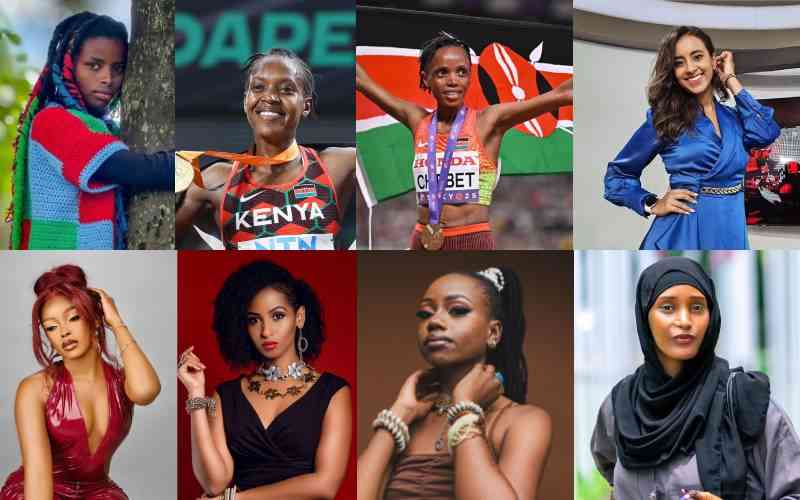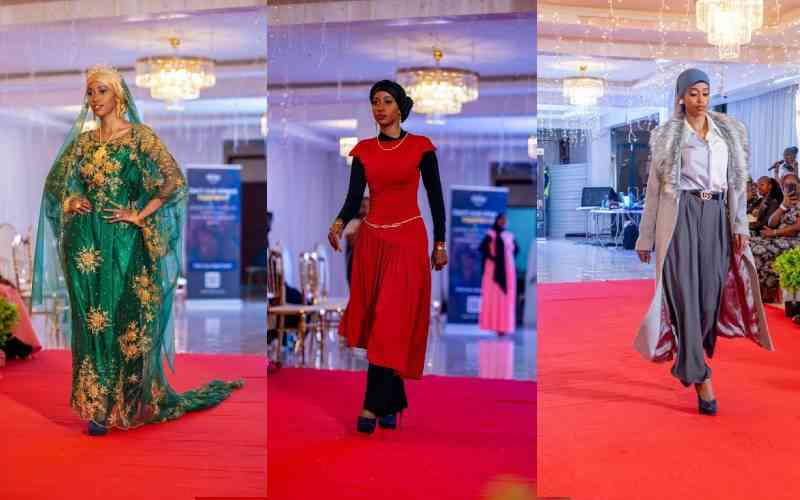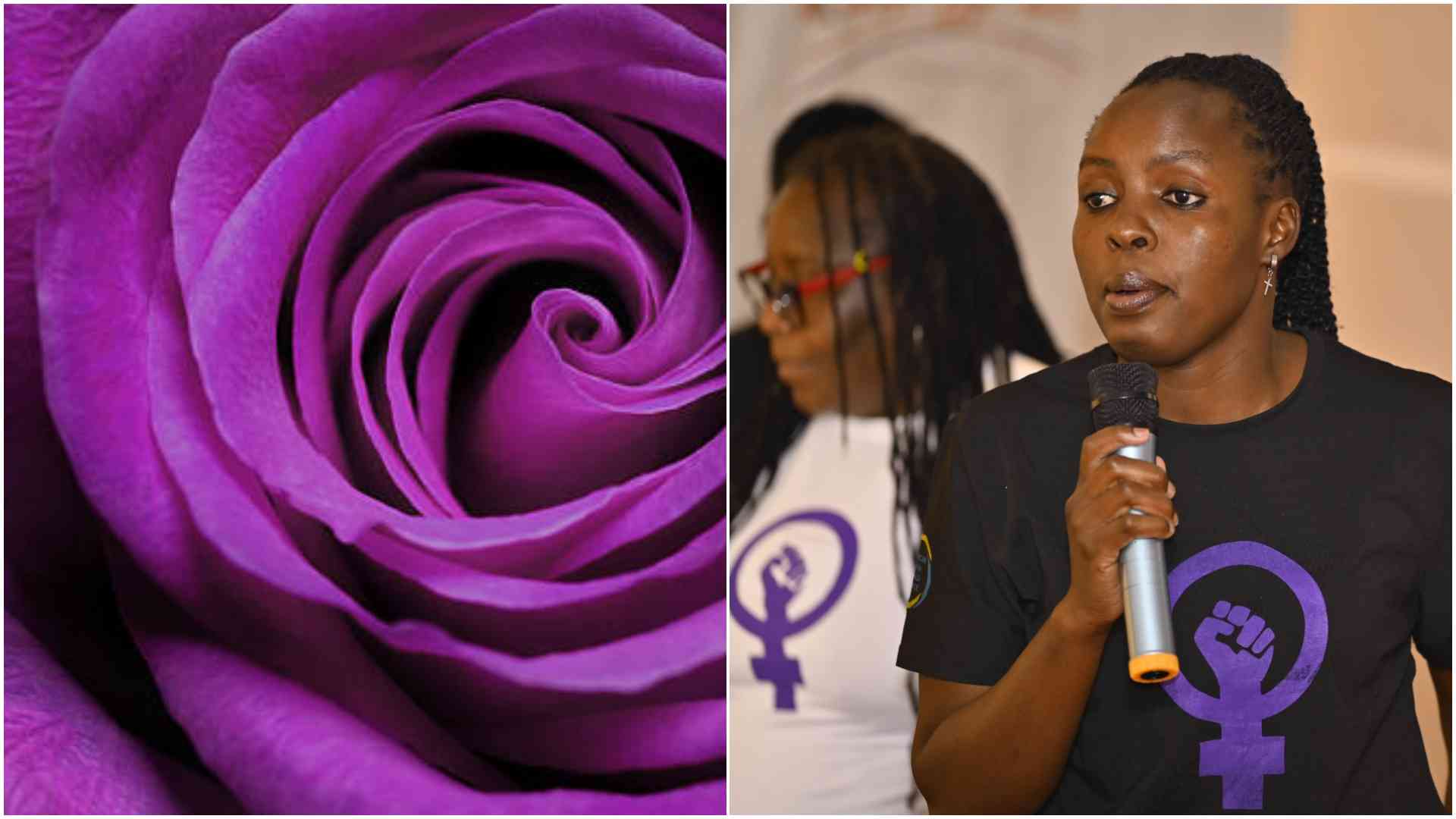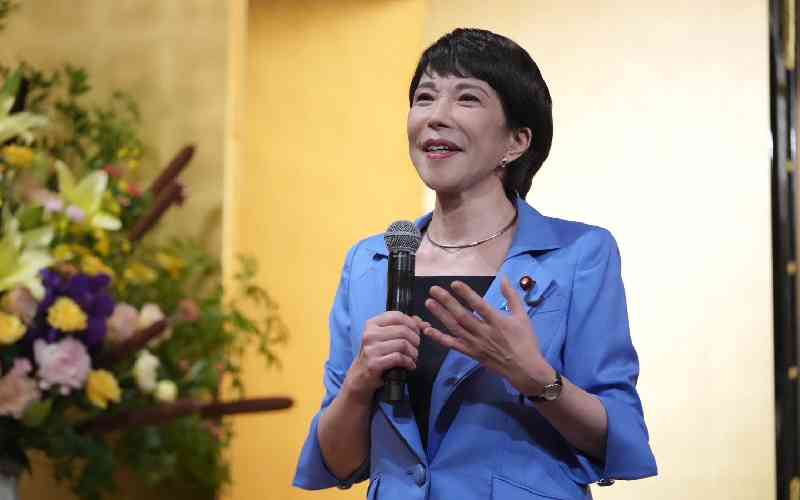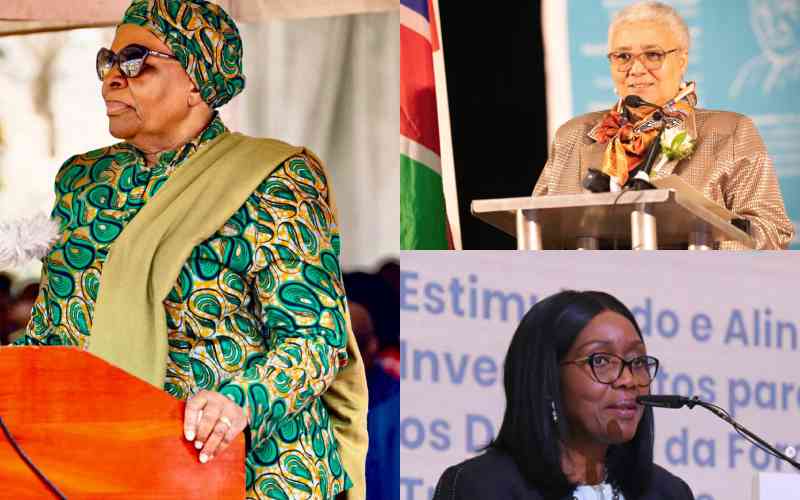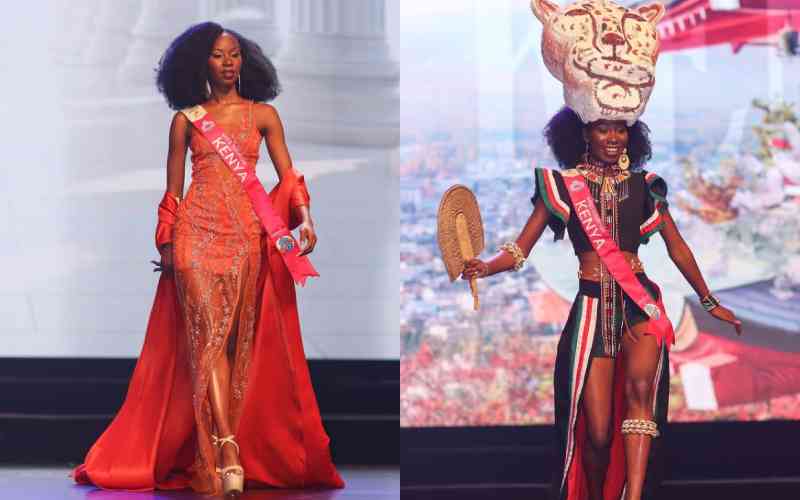
Sophisticated roles
What is remarkable is that women are taking up sophisticated roles that were hitherto assumed to be male-oriented. It has not been all smooth sailing, but there is light at the end of the tunnel. Even though there are those who argue that the change seen in women is not that significant - a case of looking at the glass as half-empty- so much is looking up for the woman.
The aim of the Gender Rule provision in the 2010 Constitution was to remedy the traditional exclusion of women and promote their full involvement in every aspect of growth and development in line with emerging realities in society. The onus will be on the next Parliament to enact the two-thirds Gender Rule to ensure more enhanced representation of women in future Parliaments as only then can they make a meaningful contribution to Kenya’s development.
Cultural beliefs about the roles of girls and women have for years held them back from contributing to important development goals especially in the areas of economic growth, nutrition and food security.
Despite framers of the Constitution of Kenya 2010 imposing a requirement that not more than two-thirds of elective and appointive positions should be occupied by one gender, Members of Parliament severally failed to enact legislation to anchor the same. In reality, women have had to work extra hard compared to their male counterparts to achieve adequate representation in Kenya’s power structure. At the moment many, including women, feel that Affirmative Action seems to have made their compatriots complacent.
What to do
Former Cabinet Secretary Charity Ngilu once said: “For women to succeed in political office, they must articulate, challenge and seek to influence the social, political and economic environment for the benefit of the people.” She was right. While it is true that gender parity can only be achieved progressively, the Jubilee-led Government from the onset, showed the desire to ensure women are empowered to actualise their dreams and to contribute to society. For the first time in the country’s history, women were put in charge of plum dockets such as Devolution and Planning, Defence and Foreign Affairs. In total, six women in the Cabinet.
Though the courts later found that President Uhuru Kenyatta’s appointments fell short of the two thirds gender rule after the Cabinet was expanded to 23, the National Gender and Equality Commission could not hide its excitement over the initial appointments. It said the president had sent a strong message of trusting women’s capabilities when he picked six women among the 16 nominees to his Cabinet. Uhuru would later describe them as very strong and able leaders in his administration.
Full cabinet
In the Cabinet now are; Raychelle Omamo (Defence), Phyllis Kandie (Labour), Amina Mohammed (Foreign Affairs), Sicily Kariuki (Youth) and Judy Wakhungu ( Environment). Several other women serve as Principal Secretaries. The move has been a source of encouragement for the girl child who now knows that nothing can stop them from rising to the top if they work hard. It is encouraging that several women are vying for various positions in next week’s elections and there is a very high possibility of two of them being elected as governors. Currently, the Council of Governors is a men’s club. Others are poised to join the Senate, which currently has all elected Senators as male.
The joke doing rounds now is that the role of the man will need to be reinvented to help them cope with the new breed of independent women.
Ms Mghongo, an architect, is an MBA student, University of Nairobi
In the past, women brought up the children, drew water, fetched firewood, tilled the land and stirred the stew in the kitchen. At the turn of the 20th century, that changed significantly. In fact, women are now taking up new roles; a lot of them occupy C-suites in big corporations, many others are running multi-billion businesses and a lot of them have plunged into the murky world of politics and are, by all means, doing better than men.Sophisticated roles
What is remarkable is that women are taking up sophisticated roles that were hitherto assumed to be male-oriented. It has not been all smooth sailing, but there is light at the end of the tunnel. Even though there are those who argue that the change seen in women is not that significant - a case of looking at the glass as half-empty- so much is looking up for the woman.
The aim of the Gender Rule provision in the 2010 Constitution was to remedy the traditional exclusion of women and promote their full involvement in every aspect of growth and development in line with emerging realities in society. The onus will be on the next Parliament to enact the two-thirds Gender Rule to ensure more enhanced representation of women in future Parliaments as only then can they make a meaningful contribution to Kenya’s development.
Cultural beliefs about the roles of girls and women have for years held them back from contributing to important development goals especially in the areas of economic growth, nutrition and food security.
Despite framers of the Constitution of Kenya 2010 imposing a requirement that not more than two-thirds of elective and appointive positions should be occupied by one gender, Members of Parliament severally failed to enact legislation to anchor the same. In reality, women have had to work extra hard compared to their male counterparts to achieve adequate representation in Kenya’s power structure. At the moment many, including women, feel that Affirmative Action seems to have made their compatriots complacent.
What to do
Former Cabinet Secretary Charity Ngilu once said: “For women to succeed in political office, they must articulate, challenge and seek to influence the social, political and economic environment for the benefit of the people.” She was right. While it is true that gender parity can only be achieved progressively, the Jubilee-led Government from the onset, showed the desire to ensure women are empowered to actualise their dreams and to contribute to society. For the first time in the country’s history, women were put in charge of plum dockets such as Devolution and Planning, Defence and Foreign Affairs. In total, six women in the Cabinet.
Though the courts later found that President Uhuru Kenyatta’s appointments fell short of the two thirds gender rule after the Cabinet was expanded to 23, the National Gender and Equality Commission could not hide its excitement over the initial appointments. It said the president had sent a strong message of trusting women’s capabilities when he picked six women among the 16 nominees to his Cabinet. Uhuru would later describe them as very strong and able leaders in his administration.
Full cabinet
In the Cabinet now are; Raychelle Omamo (Defence), Phyllis Kandie (Labour), Amina Mohammed (Foreign Affairs), Sicily Kariuki (Youth) and Judy Wakhungu ( Environment). Several other women serve as Principal Secretaries. The move has been a source of encouragement for the girl child who now knows that nothing can stop them from rising to the top if they work hard. It is encouraging that several women are vying for various positions in next week’s elections and there is a very high possibility of two of them being elected as governors. Currently, the Council of Governors is a men’s club. Others are poised to join the Senate, which currently has all elected Senators as male.
The joke doing rounds now is that the role of the man will need to be reinvented to help them cope with the new breed of independent women.
Ms Mghongo, an architect, is an MBA student, University of Nairobi
 The Standard Group Plc is a multi-media organization with investments in media
platforms spanning newspaper print
operations, television, radio broadcasting, digital and online services. The
Standard Group is recognized as a
leading multi-media house in Kenya with a key influence in matters of national
and international interest.
The Standard Group Plc is a multi-media organization with investments in media
platforms spanning newspaper print
operations, television, radio broadcasting, digital and online services. The
Standard Group is recognized as a
leading multi-media house in Kenya with a key influence in matters of national
and international interest.




